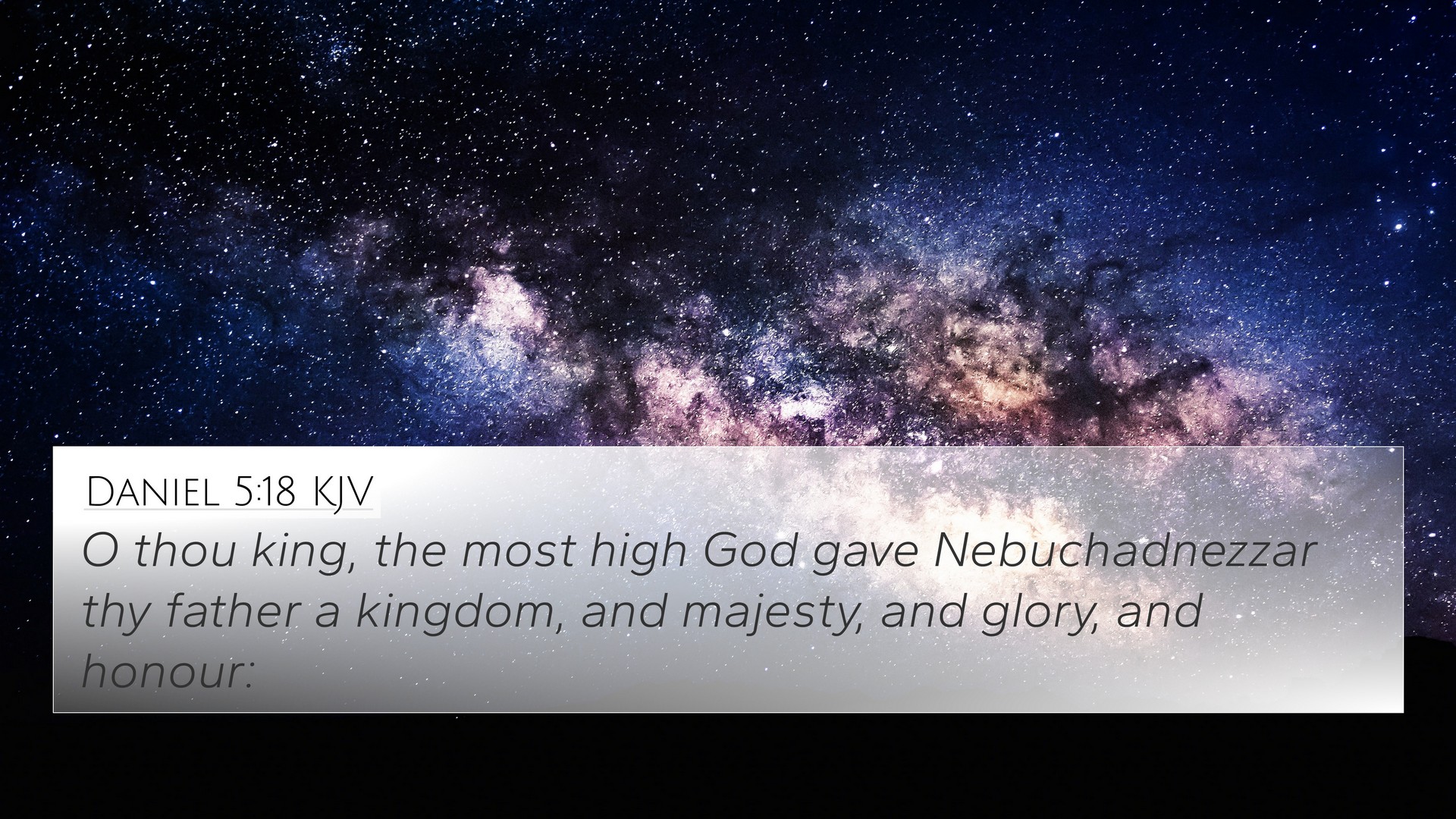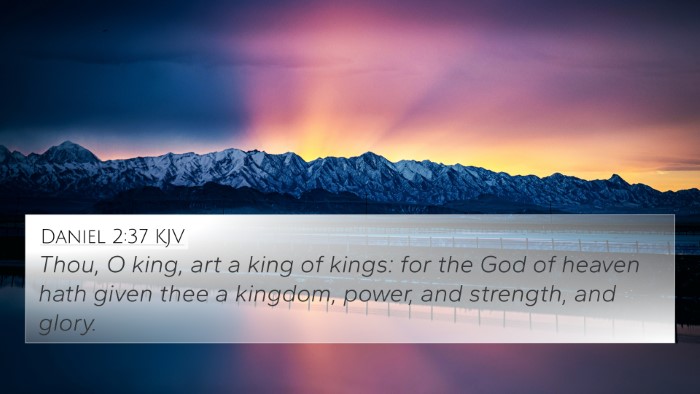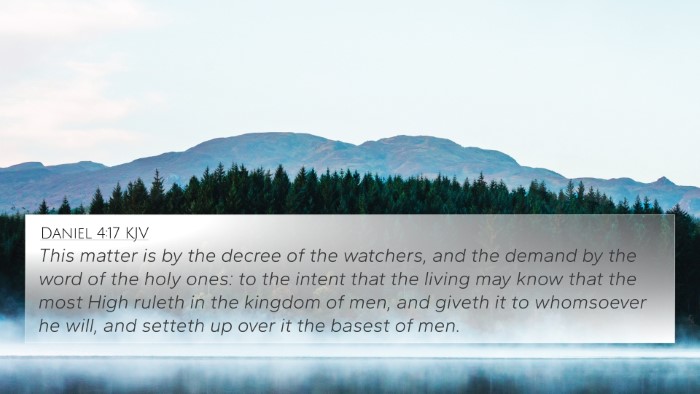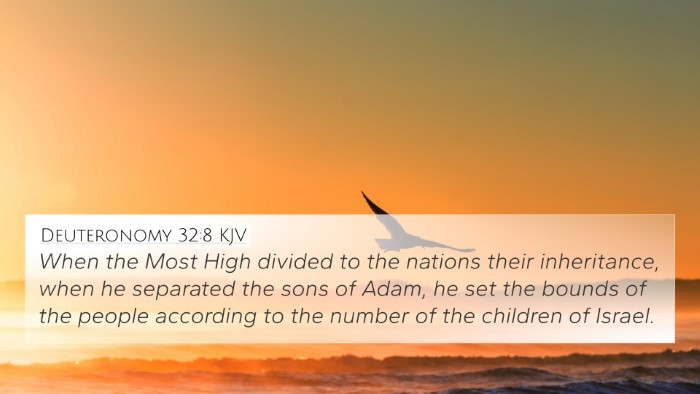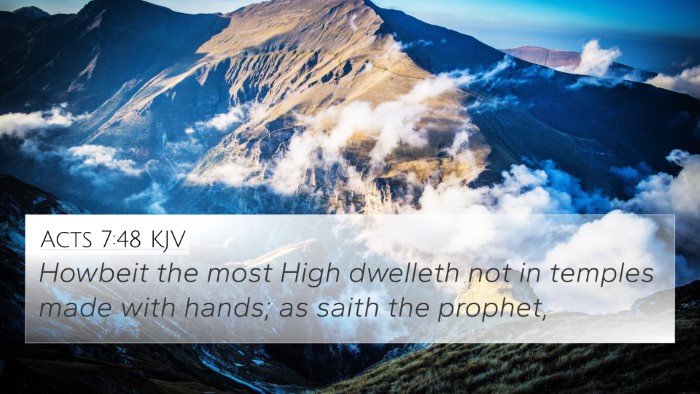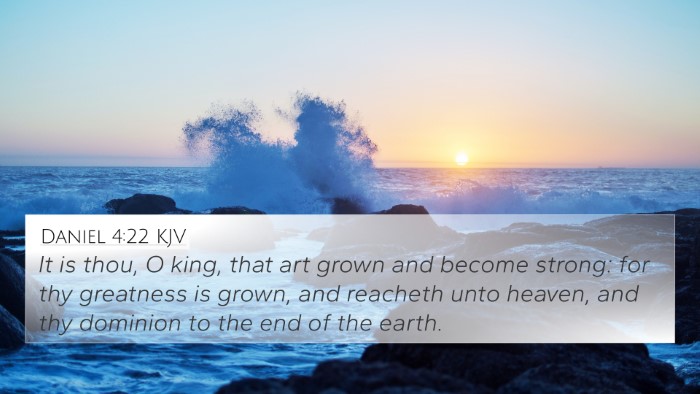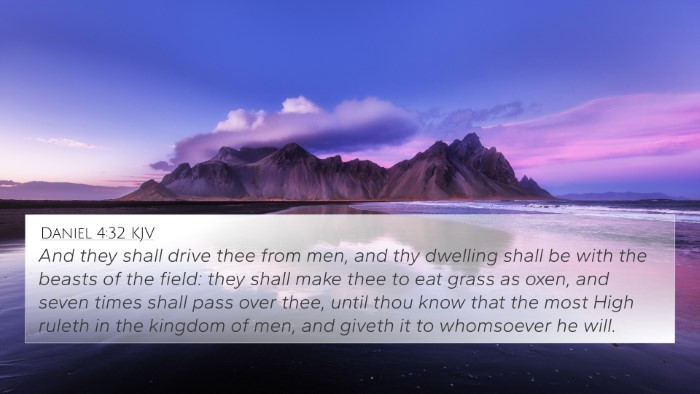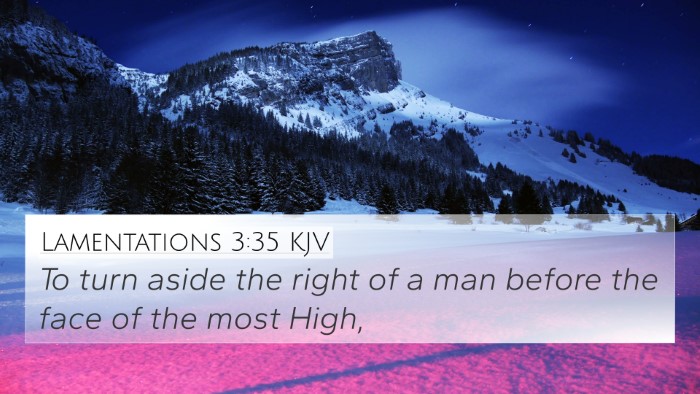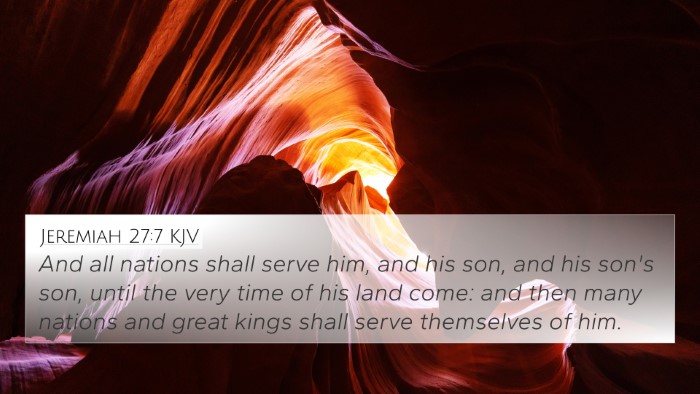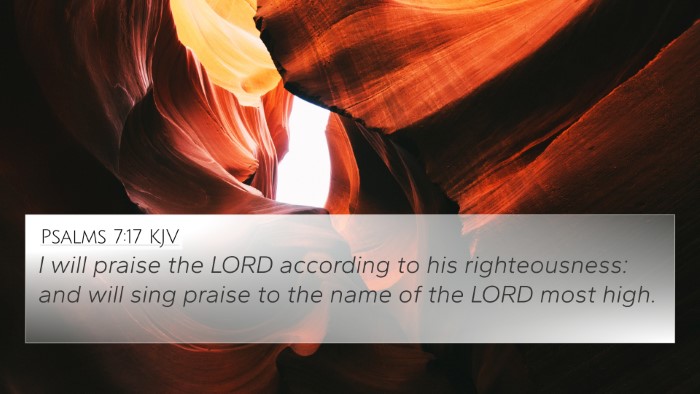Understanding Daniel 5:18
The verse Daniel 5:18 holds great significance within the Biblical narrative, capturing a critical moment of divine revelation and judgment. This verse states:
"O thou king, the most high God gave Nebuchadnezzar thy father a kingdom, and greatness, and glory, and honor."
Here, the prophet Daniel speaks to King Belshazzar, relating the history and the grievous error of his predecessor, Nebuchadnezzar, in failing to recognize God's sovereignty.
Insights from Biblical Commentaries
In analyzing this verse, the insights from public domain commentaries offer depth and clarity:
-
Matthew Henry:
Henry highlights the importance of recognizing God's power and authority. He explains that Belshazzar's failure to heed the lessons from Nebuchadnezzar's life led to his downfall. The acknowledgment of God’s greatness is vital for rulers and all individuals alike.
-
Albert Barnes:
Barnes emphasizes the idea that God is the ultimate giver of authority. The reference to Nebuchadnezzar serves as a reminder that earthly power comes from God. It reminds readers about the consequences of pride and rebellion against divine authority.
-
Adam Clarke:
Clarke elaborates on the notion of divine providence, suggesting that the king’s elevated status was granted by God. He notes that historical context is essential for understanding the verse, as it addresses a transition from the glory of Nebuchadnezzar to the judgment of Belshazzar.
Cross-References for Daniel 5:18
The following Bible verses share thematic connections with Daniel 5:18, illustrating similar themes of divine authority and judgment:
- 1 Samuel 2:7: "The Lord makes poor and makes rich; He brings low and lifts up." This emphasizes God's control over earthly status.
- Proverbs 21:1: "The king's heart is in the hand of the Lord, like the rivers of water; He turns it wherever He wishes." This highlights God's sovereignty over rulers.
- Isaiah 40:23: "He brings the princes to nothing; He makes the judges of the earth worthless." This reflects on God's ultimate authority over human power.
- Daniel 4:30: "The king spoke, saying, 'Is not this great Babylon, that I have built for a royal dwelling by my mighty power and for the honor of my majesty?'" This demonstrates Nebuchadnezzar's pride and the resulting consequences.
- Daniel 4:37: "Now I, Nebuchadnezzar, praise and extol and honor the King of heaven, all of whose works are truth, and His ways justice." This verse relates to the consequences of recognizing or disregarding God's authority.
- Romans 13:1: "Let every soul be subject to the governing authorities. For there is no authority except from God, and the authorities that exist are appointed by God." This New Testament reference connects to the theme of God-ordained authority.
- Revelation 1:5: "[Jesus] is the ruler over the kings of the earth." This denotes Christ’s authority over all earthly powers, resonating with the message of Daniel 5:18.
Thematic Connections and Interpretations
This verse resonates with several themes throughout the Bible, establishing a rich tapestry of inter-Biblical dialogue:
- The Sovereignty of God: The depiction of God's control over kingdoms reflects a consistent Biblical theme, reminding believers of His omnipotent nature.
- Divine Judgment: The judgment that fell on Nebuchadnezzar serves as a warning throughout Scripture, illustrating the spiritual importance of humility before God.
- Human Pride vs. Divine Authority: The contrast between Belshazzar's arrogance and God's ultimate sovereignty is a recurring motif in Scripture, inviting readers to examine their own hearts.
- Lessons from History: The recollection of Nebuchadnezzar serves as an admonition to current rulers and individuals alike about the weight of divine lessons from history.
Tools and Methods for Bible Cross-Referencing
In exploring the connections between these verses, numerous tools and methods can assist in cross-referencing:
- Bible Concordance: A valuable resource for finding direct references and contexts for many terms and subjects within the Scriptures.
- Bible Cross-reference Guide: Helpful for finding verses that connect or relate contextually to others, enhancing understanding.
- Cross-reference Bible Study Techniques: Methods such as thematic studies, verse mapping, and parallel reading can enrich individual study.
- Comprehensive Bible Cross-reference Materials: Various study Bibles and software provide annotated texts with relevant cross-references for deeper exploration.
Conclusion
Daniel 5:18 stands as a reminder of God's eternal authority and the serious consequences that come from pride and disregard for His sovereignty. Through systematic cross-referencing and thoughtful study, believers can uncover deeper insights that enrich their understanding of the Bible and its teachings.
Further Study Suggestions
To further explore the themes and connections within Daniel 5:18, consider the following:
- What does the New Testament say about authority and kingship?
- How does the story of Nebuchadnezzar inform our understanding of leadership today?
- Explore parallels between the messages in Daniel and those found in Revelation.
